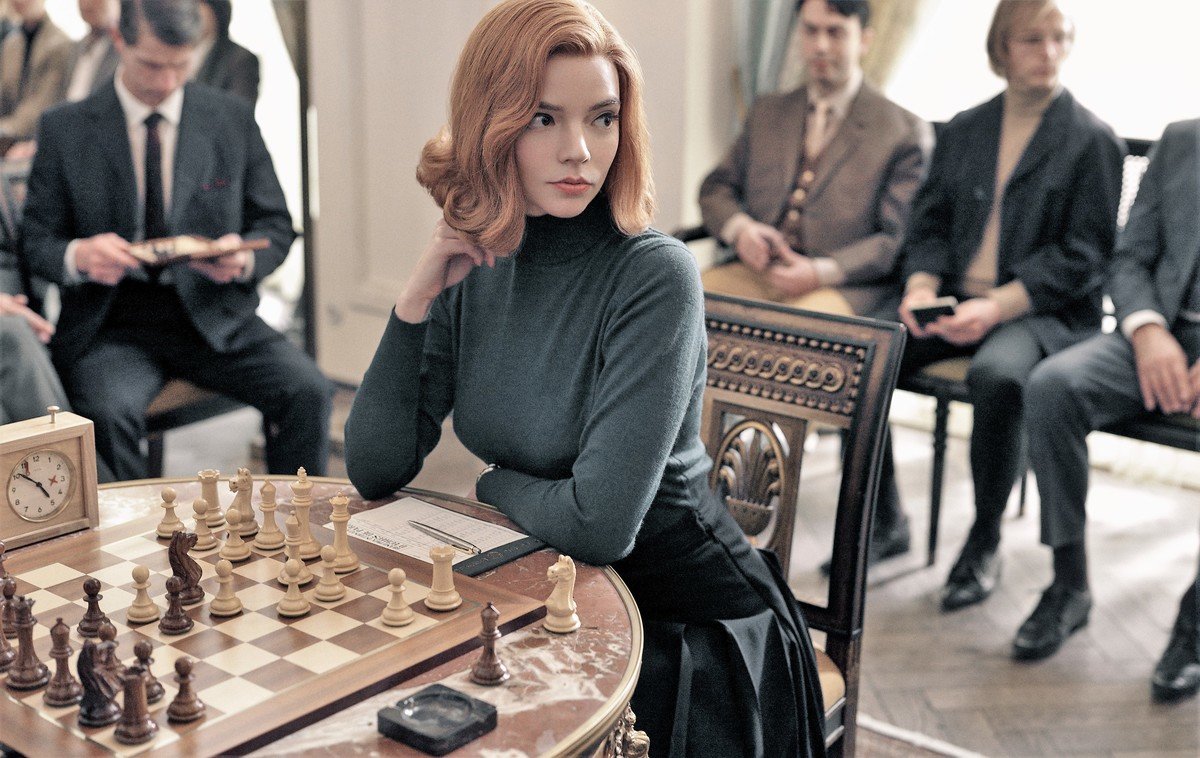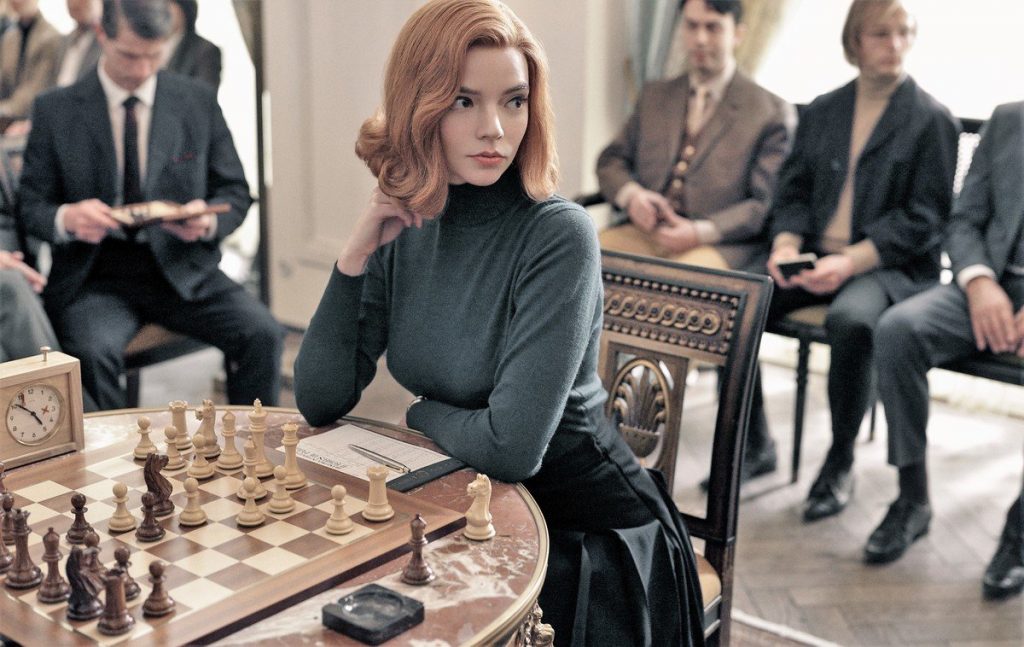

The Queen’s Gambit, a Netflix original limited series, tells the fictional story of an orphaned girl and chess prodigy in the 1950s who launches out into adulthood and the international tournament circuit in the grip of an ominous addiction.
Replete with drug abuse, sexual content, and profane language, the series’ principal story arc follows in many ways the contours of other rock-star-like scraping-the-bottom sort of tales.
Yet in this case the darker elements get balanced with something so honest and youthful and fundamentally clean, that these fade into the background of a grippingly idiosyncratic story of hope.
Indeed, the series might be interpreted as a counterintuitive morality tale that focuses not so much upon the ethical accountability of the individual, but upon how we each find ourselves, even from the age of innocence, already embroiled in the sins of a broken, imperfect world.
For instance, at an early age Beth Harmon discovers herself in an orphanage after her mother commits suicide. There she instantly develops a taste for prescription pills as a result of the institution’s fashionable practice of distributing tranquilizers to children.
Along the way, instead of singing during chapel time she learns chess, her saving grace, from the school’s surly janitor.
Then she is adopted and learns compulsive drinking from an unhappily married mother-figure who self-medicates her despair.
Little wonder, then, that Beth emerges into adulthood vulnerable to substance abuse and unhealthy, transient attachments: these are all she’s ever known.
The Queen’s Gambit thus lays a finger upon a pointed and perennially relevant moral conundrum. It is even possible in the game of life — and a so inauspiciously-opened game of life — to live a functional, let alone ethical, human existence?
Yet the good news in this drama (as at the core of Christianity) is that it is.
A good life, a really human life, is possible, Beth’s experience suggests, even in the midst of sustained, recurring disaster.
It may not be easy. It may not be straightforward or perfectly consistent or completely tidy. But it can happen.
The series’ view on how it might happen may only partially overlap with a Christian view, but there is some overlap.
The only formal religion Beth encounters in the series is the rather frigid, hymn-singing piety of the school marms.
Yet one might discern some glimpses of the real substance of religion in the integrity and ragtag relationships she is able to sustain along the way.
Indeed, the fact that Beth remains really good at something, i.e. chess, despite all her difficulties, acts in the series like a kind of grand metaphor.
She fails in all sorts of ways and learns several life lessons the hard way, yet real goodness, even excellence, persists amidst the messiness.
She loses loved ones, overreacts, compulsively cuts ties, and yet her residual good thing grounds and facilitates enough friendship, fidelity, and forgiveness to outmatch the combined powers of tragedy.
She sins, yet her ethical indiscretions, as numerous as they are, are not in the end what define her. Rather, in the light of final victory these are all but forgotten, recast as so many internal impediments fallen flaming into her lap out of the disasters of the wider world.
There is a moment late in Evelyn Waugh’s novel Brideshead Revisited where a character, Cordelia, reflects upon the outwardly tragic career of her dipsomaniac brother, Sebastian.
Cordelia relates how Sebestian, who began life with every advantage, wallowed away his health and prospects only to end up a kind of mendicant doorkeeper at a monastery.
She summarizes the saga, “Not such a bad way of getting through one’s life.”
Such an extraordinary assessment of what might appear, outwardly, to be an unethical, misspent life, might be the unique prerogative of the eyes of love which discover a common humanity even in imperfection.
The Queen’s Gambit might not show us, in Beth Harmon, how it looks to be a saint, but it might just show us how a saint looks at Beth Harmon, that is, how one might gaze upon a struggling, inconstant, recovering addict-to-sin and find a moving image of oneself.
